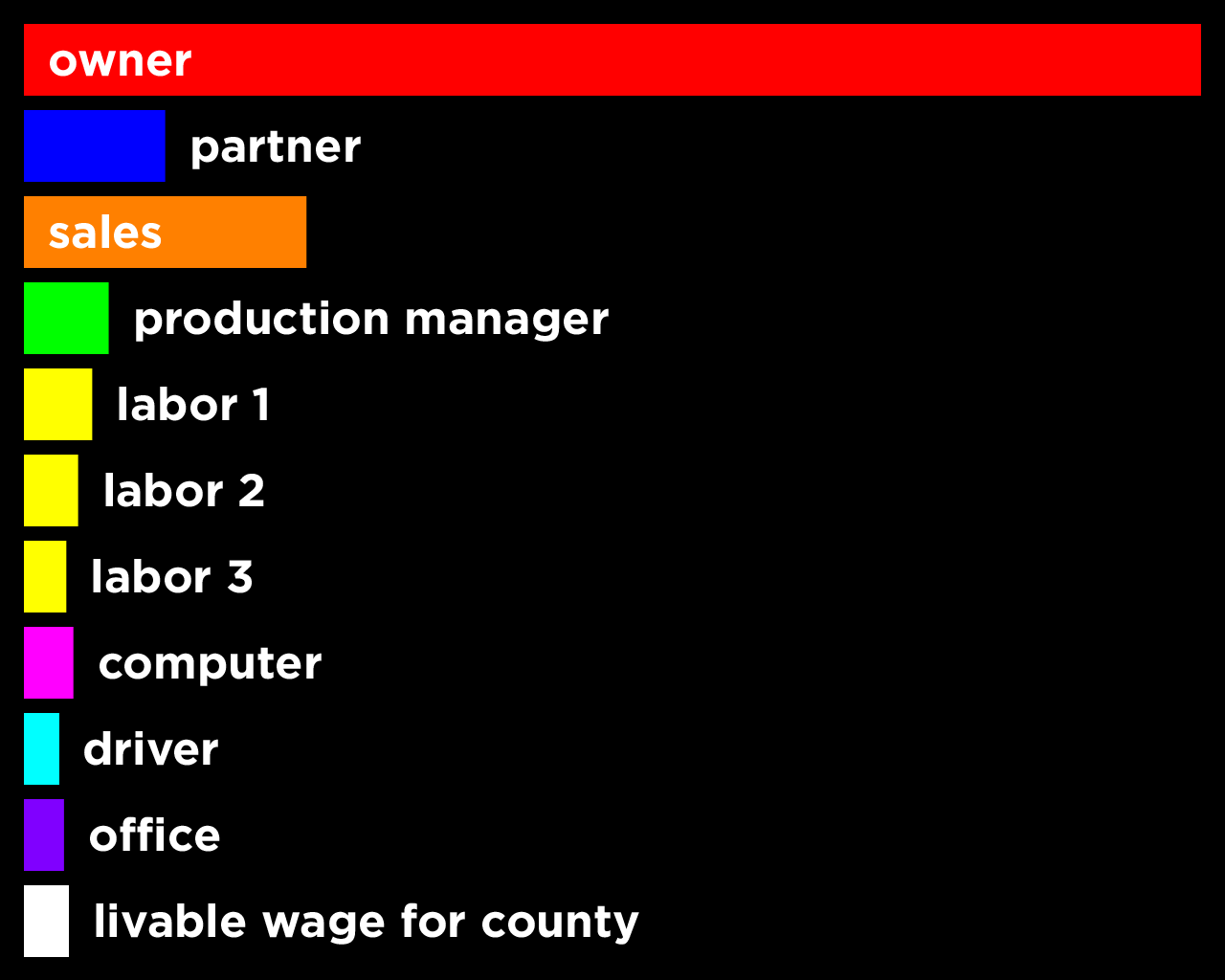I understand that my definition of quiet quitting is not what most people on this thread mean. I'm ok with the definition most of you use. When I'm talking about it, as I've said before, I have a certain slacker mentality in mind because that's how I've been it seen applied in my day to day life.
Of course if people only do their job that's not a real issue. It was a great point to bring up the perspective of the employer because employers can always fire underperforming employees. The system is pretty good at ironing these things out.
Thank you for this. The only thing I took issue with is your use of the term quiet quitting, because it seemed your assertion was based on a false premise.
I suspect my underlying passion on this issue is that I perceive some workers at my job as having 'given up' and they repeatedly make mistakes but due to my company not being cost enough money by these mistakes the employees stays. They make way less money than I do so it's really no skin off my back it's just annoying to work with people who don't like or care about their job.
It can be annoying to work with people like this, first because one’s own work can be impeded, made more difficult, and so on. Second because as they affect the company, you are inevitably affected, and third, the morale of staff and its effects upon individual employee mood and performance is a very real thing.
Work culture means a lot, both overall, and between and among coworkers.
But that's life, right? There is always going to be a wide variety of people and attitudes they have towards work and their job. I can have mine and my preferences but just statistically speaking I'm going to have to work with people who I don't really appreciate their mindset.
All other things being equal, yes, but as long as we are talking about one’s coworkers being engaged at a level equitable with one’s own, perhaps not. Different companies have different tolerances for and approaches toward heterogeneity among their employees engagement.
I do think for me, it's a moral issue, and I understand that seems to upset people but I would push back and say those who are doing the quiet quitting have moral convictions behind their decision, too.
I only took issue with the idea because the pejorative use of quiet quitting reframes what many consider unethical or immoral action on the part of employers as the demonstration of an unethical or immoral
character or temperament of their employees.
The clash between these mindsets has been going on forever and I do appreciate the labor movement in terms of taking children out of the work force, 8 hour days, overtime pay, and all the other great benefits we have. I recognize that though the mindset doesn't resonate with me, we do need people to push against the standard set by employers to get better work conditions.
Surely we do. People died so we could have what we have today. Blood ran in the streets so children did not have to work in mines and so people did not have to work seven days a week.
Perhaps too, the way I was raised, I deal with tough times with getting tougher and adapting to my circumstances. Trying to get people to change never worked in my life, so I changed myself. And that's what these people are doing in a way ... It just seems sad, it seems like giving up. But that's only the way I view it, it seems these people are happy with their decisions.
Recognize that they too are adapting to their circumstances. They are changing something they have control over.
Sometimes they are not giving up, but instead are for the first time recognizing their right to set and enforce personal boundaries. Maybe they have reconsidered the extent of their abilities, the limit of their resources, the constraints of their situation, their needs and perhaps the needs of others, and recognized a redirection of their efforts was right for them. Some, in recognition of their limits, have less because of misfortune or a change of circumstance they must endure.
I feel like when we get into workers rights, too often the worker only looks at things from their own perspective, which is completely natural but it often leads to unrealistic expectations on the employer.
That is very fair, and I agree.
I suppose it's just my opinion but I think it's much harder to actually run a company than it is to be a clock in clock out worker who doesn't have to directly respond to stock holders.
It certainly requires different things, but whether or not it is harder depends on how that’s defined.
Business is delicate and until somebody has had to have the responsibility of being in charge, it is too easy to have your hand out asking for more and assuming it's easy to just give everyone more.
Of course. It can be easy to see people like baby birds in the nest, all with gaping maw, desperate for a little more.
At the same time if somebody has only ever been in charge and running a business they might have wrong assumptions about the workers.
Or if they have been in charge for some time, they may forget, or fall under the spell of confirmation bias, survivorship bias, etc., and for sure, humans love to recast their choices made in serendipitous moments as insightful, planned, and intentional when the results of those choices are valued and beneficial, especially when that’s easily appreciated by those well outside the situation.
It goes both ways and maybe I'm harping more from the employer perspective because it's not being defended, because there is little regard for it in a lot of the responses.
Here’s a graph of the relative wages of various employees from a company I once worked for, a company where people loved to work because of the culture, and a company with the smallest level of income disparity for its type of industry in its regional area.
Note: Sales is the only position where working harder could result in additional wages. Labor 1, 2, 3, computer, and driver could earn additional income only by working additional hours, if and when available. Labor 1, 2, driver, and office were single-income households. Of those, only driver lived with other family. Office was computer and driver in the past. Office worked hard, but eventually almost died because of inability to afford necessary medications, rendering him disabled and unable to work. Livable wage included for reference.
I admittedly wanted just a little more. But fair enough, that would have required other(s) to be paid less. Because I discovered that when I was creative, and found a way to work smarter, be more productive, save money, automate, and so on, it only made the red, blue, orange, and green bars longer.
I continued to do those things, because that’s who I am. Until I no longer could, of course.
I will simply say it was the best place I ever worked, full stop. I remember my coworkers fondly, and some I still consider friends. The situation was what it was. If (any of) you want to assign it a value, or judge it one way or the other, go right ahead.
Cheers,
Ian







